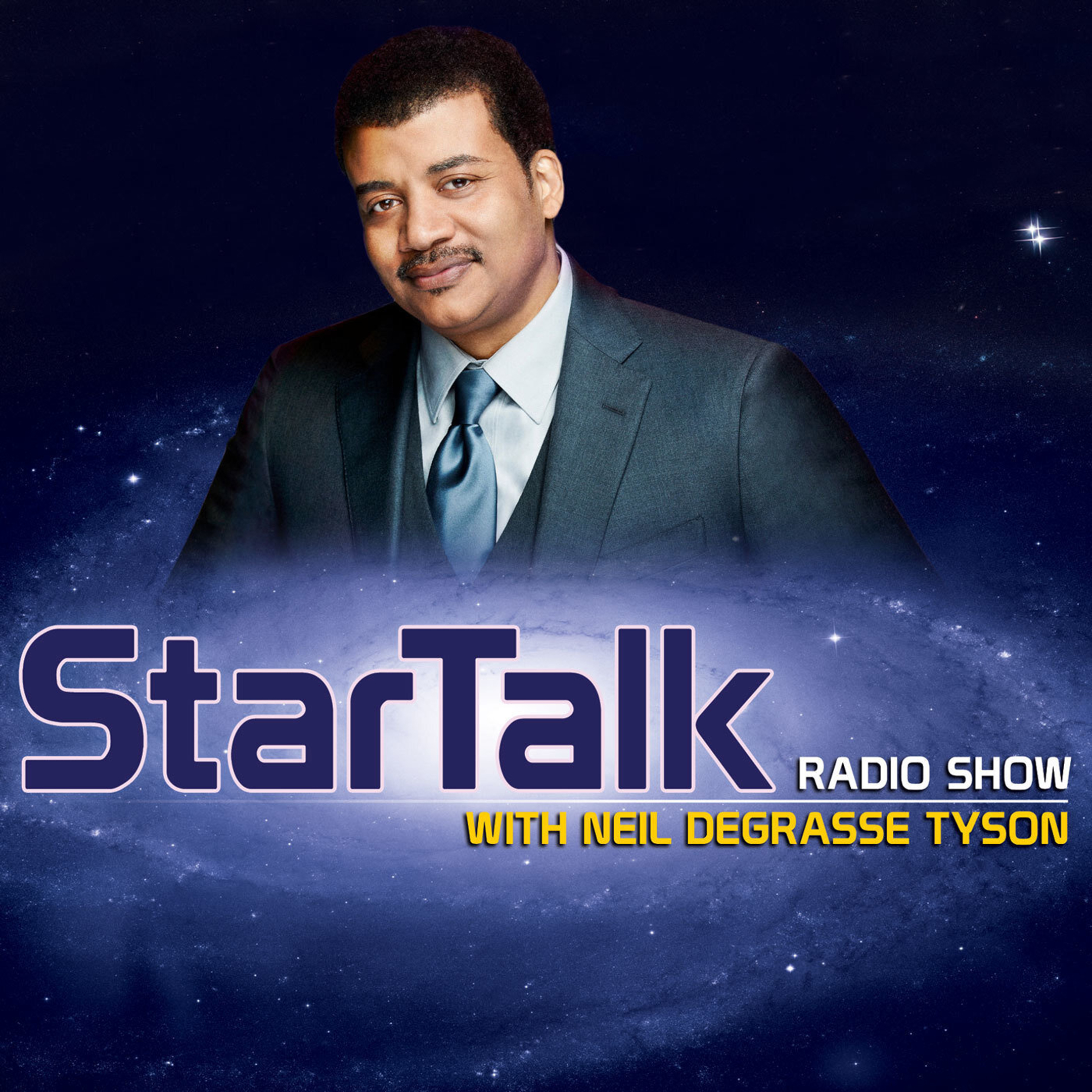
Extra Credit
Ten Great, Enjoyable, and Educational Podcasts
Expand your horizons this summer with some of the best audio shows around
Because of the coronavirus pandemic, students, families, and educators had to get creative to ensure learning still happened while schools remained closed for months. For most, that meant taking classes online and filling out the remote-learning experience with different kinds of digital resources, like streaming documentaries, virtual field trips—and podcasts.
There are a lot of podcasts out there (more than 1 million shows and 30 million episodes!) and some of the most popular are fun but, let’s say, not very educational. But there are plenty of podcasts that will teach you something in fun and engaging ways. And students of all ages who have spent the pandemic learning from home have turned to them to help expand their minds. (Creating a podcast is also a great classroom activity, especially if your classroom is your living room.)
The summer is usually a time for a break from school, but podcasts are a perfect way to keep learning without it feeling like work. Here are 10 of the best educational podcasts that you should add to your playlist.

Airing on National Public Radio since 1995, the show has become one of the country’s most popular audio programs. In each episode, host Ira Glass engagingly presents a range of story-supported themes that all revolve around the experience of living in the United States. The weekly program recently won the first Pulitzer Prize for a radio show.
Recent Episodes: "Stuck!" (52 minutes) features stories of people frustrated by feeling stuck in different ways; "Prom" (55 minutes) highlights eventful stories of high school prom nights; "One Last Thing Before I Go" (56 minutes) features regular folks trying to get through to loved ones before time runs out.

Launched in early 2017 by two University of New Mexico graduate students, Gabriel Hesch and Sofía Baca, with an interest in math and science, the show makes STEM topics both accessible and enjoyable. It’s also proven popular, with the podcast approaching 50 episodes.
Recent Episodes: "Thinking Machines" (59 minutes) calculates the future of artificial intelligence; "Go with the Flow" (38 minutes) is an introduction to conceptual calculus; "Blast to the Past" (31 minutes) explores retrocausality.

Launched on New York Public Radio in 2002 and hosted by Jad Abumrad and Robert Krulwich, Radiolab presents scientific topics in a fun format. There’s a version for younger listeners, too, titled Radiolab for Kids.
Recent episodes: "Octomom" (32 minutes), about undersea parenting; "Behaves So Strangely" (18 minutes), about the sound of different languages; "Poop Train" (21 minutes), about what happens after we flush.

Astrophysicist Neil deGrasse Tyson's long-running show about space (and Earth's place in it) is in its 11th season, with fun explorations of astronomy, robotics, the cosmos, and (yes) the coronavirus.
Recent episodes: "Humans in Space" (52 minutes) digs into NASA's study of twin astronauts; "Hubble Space Telescope" (53 minutes) looks at NASA's recently-retired viewer of distant stars; "Humans and Robots" (50 minutes) investigates what separates people from intelligent machines.

Hosted by Mignon Fogarty, author of Grammar Girl's Quick and Dirty Tips for Better Writing, this user-friendly program has more than 700 archived episodes and blog posts that focus on all aspects of improving your mastery of the English language.
Recent Episodes: "Why Do We Say 'Cool Your Heels'?" (20 minutes) looks at the origin of that phrase; "Why Are We ‘Overwhelmed,’ but not ‘Whelmed’?" (13 minutes) about the meaning of that phrase; "'Flaunt' and 'Flout'" (13 minutes) helps us understand when to use each word.

Stuff You Missed in History Class
Cohosted by Tracy Wilson, editorial director of HowStuffWorks.com, and Holly Frey, this podcast focuses on interesting historical events and people that are important but tend to be overlooked.
Recent Episodes: "The Dark Legacy of Sea Monkeys" (34 minutes), about the inventor of a famous mail-order pet; "Catherine the Great, Librettist" (35 minutes), about the Russian empress' obsession with opera; "The Kentucky Derby's First 50 years" (31 minutes), about the rise of the world's most famous horse race.

Launched in 2008 by HowStuffWorks.com writers Josh Clark and Chuck Bryant, this podcast has more than 1,400 episodes, with plenty of topics appropriate for younger listeners looking for a fun explainer of obscure questions that their teachers may not focus on.
Recent Episodes: "How Bras Work" (57 minutes), about operating the deceptively simple undergarment; "Mary Had A Little Lamb" (15 minutes), about why the nursery rhyme was controversial; “Chuck Bryant’s Speech from Commencement” (7 minutes), featuring the SYSK co-host's speech to the Class of 2020.

A show about architecture and the built environment sounds like a podcast for design nerds. In fact, host Roman Mars often addresses listeners as “beautiful nerds.” But the topics 99% Invisible digs into in its more than 400 episodes—be it buildings or fashion or trash—give listeners a new insight into the world around them, and a way to gain a new appreciation for aspects of our daily lives that we take for granted.
Recent Episodes: “Masking for a Friend” (43 minutes), about the culture of facemasks; “Wipe Out” (36 minutes) explores why so many people struggled to find toilet paper in the first days of the pandemic; “Their Dark Materials” (42 minutes) takes a deep, long look at the science of Vantablack, the blackest black ever created, and what good the color is for.

A production of the Smithsonian Institution and hosted by Lizzie Peabody, Sidedoor takes listeners into the Smithsonian’s vast archive of more than 156 million objects to better understand America and the people and culture that got us here. The fifth season began in February, and with roughly 15 episodes a season there’s a lot to explore.
Recent Episodes: “The Worst Video Game Ever?” (26 minutes) unearths the legend and myths of Atari’s so-bad-it-was-buried-in-the-desert E.T. video game; “Apollo 12’s Really Close Call” (30 minutes) gives the overlooked moon mission its due; “Cars, Stars, and Rock ‘n’ Roll” (31 minutes) gives listeners the chance to sit with Smithsonian Secretary Lonnie G. Bunch III as he shares some of his favorite objects in the collection.

The Secret History of the Future
A coproduction of Slate and The Economist, The Secret History of the Future pulls back the curtain on the old tech—sometimes very old tech—that laid the foundation for today’s smartphones, self-driving cars, and other innovations. The second season wrapped in September 2019, and the show’s 20 episodes, hosted by Seth Stevenson and Tom Standage, are excellent pop history and a massively enjoyable journey into the world of technology.
Recent Episodes: “New Media, Old Story” (40 minutes) reveals that radio, the original social media, had many of the same possibilities and dangers as Twitter and Facebook; “A Bug in the System” (36 minutes) examines the legacy of Ada Lovelace, who wrote the first computer program, and what she can teach us about algorithmic bias; “Salvation in the Air” (36 minutes) looks at the early-20th century idea of pulling nitrogen from the air to make fertilizer as a way to explore the possibility of extracting carbon dioxide from the atmosphere today.


